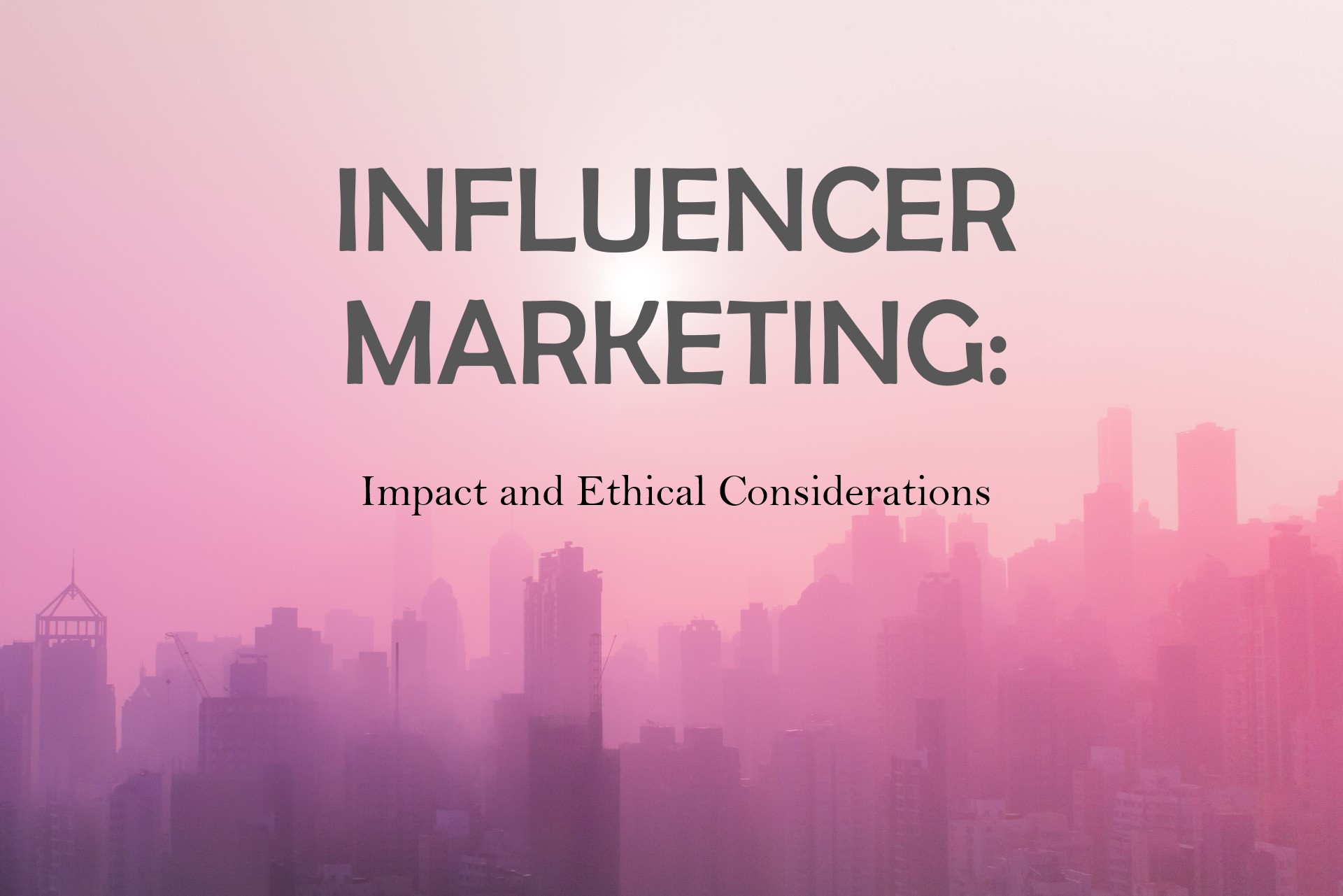Influencer Marketing: Impact and Ethical Considerations

Do you get sucked in by a captivating personality marketing a product or service on your social media feeds? That’s likely an influencer trying to pique your interest in a product or service. Popular figures on social media play a significant role in influencing purchases made by their followers.
In this piece, we'll explore the exciting field of influencer marketing and its implications for companies and their target audiences. But we won't stop there! We'll also unravel the ethical considerations that surround this modern marketing phenomenon. So, grab your favorite snack, sit back, and let's explore this captivating world together.
The Rise of Influencer Marketing
Influencer marketing has revolutionized the way brands connect with their target audience. Gone are the days of traditional advertisements bombarding consumers. Instead, influencers, with their authenticity and relatability, have captured the hearts and attention of millions. These digital trendsetters hold the power to sway consumer decisions, making influencer marketing an integral part of many brands' strategies.
According to research conducted by Inmar Intelligence, a staggering 84% of consumers have made a purchase based on an influencer's recommendation. This statistic alone demonstrates the immense impact that influencers have on consumer behavior. Their ability to create engaging content, build trust with their audience, and authentically endorse products or services has turned them into valuable marketing assets.
In the ever-evolving landscape of influencer marketing, finding the best influencer marketing agencies can be a game-changer for brands aiming to maximize their reach and impact. These agencies not only possess the expertise to identify the ideal influencers but also excel in crafting multifaceted campaigns that resonate with diverse audiences. Collaborating with the best influencer marketing agencies allows brands to harness the full potential of this dynamic marketing strategy, ensuring their message reaches the right people, at the right time, and in the most engaging ways possible.
The Benefits of Influencer Marketing
So, what makes influencer marketing so effective?
1. Expanded Reach and Engagement
Influencers have cultivated a loyal following, often consisting of thousands or even millions of engaged users. Collaborating with influencers allows brands to tap into their existing audience and expand their reach exponentially. With influencer marketing analytics and campaign insights, demand forecasting becomes more realistic to calculate. By harnessing the power of influencer partnerships, businesses can effectively amplify their message and increase brand awareness.
2. Authenticity and Trust
Influencers are masters at creating authentic content that resonates with their followers. Unlike traditional advertisements, influencer endorsements feel more genuine, as if a trusted friend is recommending a product. This authenticity fosters trust between influencers and their audience, making consumers more receptive to their recommendations.
3. Targeted Marketing
Influencers often specialize in specific niches, allowing brands to target their ideal audience more precisely. Whether it's fitness, fashion, beauty, travel, or whatever niche you represent, influencers can reach a highly targeted demographic that aligns with your target market. This tailored strategy guarantees that marketing efforts target the most probable customers.
Ethical Considerations in Influencer Marketing
While influencer marketing offers numerous benefits, it's crucial to address the ethical considerations surrounding this industry. Here are some key points:
1. Transparency and Disclosure
Transparency is paramount in influencer marketing. The Federal Trade Commission (FTC) requires influencers to clearly disclose their partnerships and sponsored content. This ensures that consumers are aware of the commercial nature of the endorsement. Responsible influencers prioritize transparency, clearly indicating when their content includes sponsored posts or affiliate links.
2. Authenticity versus Deception
Maintaining authenticity is crucial in influencer marketing. However, some influencers resort to deceptive practices, such as purchasing fake followers or engaging in undisclosed sponsored content. This undermines the trust between influencers and their audiences. Businesses must be diligent in selecting ethical influencers to maintain the integrity of their brand.
3. Balancing Commercial Interests and Genuine Recommendations
Influencers must strike a delicate balance between their commercial interests and genuine recommendations. It's essential for influencers to align themselves with products or services they genuinely believe in to maintain credibility and trust. Businesses should seek influencers who align with their brand values and encourage authentic endorsements.
Conclusion:
Influencer marketing has undoubtedly transformed the advertising landscape, allowing brands to connect with their target audience in innovative ways. Businesses can broaden their customer base, reach, credibility, and customer engagement by using influencers.
However, ethical considerations must be at the forefront of influencer marketing strategies. Transparency, authenticity, and maintaining consumer trust are vital for long-term success in this dynamic field.
As you navigate through your feeds, look out for these dynamic influencers. Take a moment to appreciate the impact they have on shaping consumer behavior and remember the importance of ethical practices in this captivating world of influencer marketing.
Frequently Asked Questions
How do I identify if an influencer is being transparent about sponsored content?
Look for clear disclosures such as #ad, #sponsored, or other similar indicators. Responsible influencers prioritize transparency and make it evident when content is sponsored.
Are there any regulations regarding influencer marketing?
Yes, the FTC has guidelines that require influencers to disclose their partnerships and sponsored content. Adhering to these regulations is essential to maintaining transparency and consumer trust.
What should businesses consider when selecting influencers for partnerships?
Businesses should prioritize aligning with influencers who share their brand values and have an authentic connection to their target audience. Look for genuine endorsements and a history of ethical practices.
How can influencers maintain authenticity while still promoting products or services?
Influencers should only collaborate with brands they genuinely believe in. By maintaining the integrity and being selective with partnerships, influencers can strike a balance between commercial interests and genuine recommendations.
Are there any studies on the long-term impact of influencer marketing?
Research shows that influencer marketing can lead to sustained brand awareness, increased customer loyalty, and improved sales. Long-term success depends on ethical practices and maintaining authentic connections with the audience.